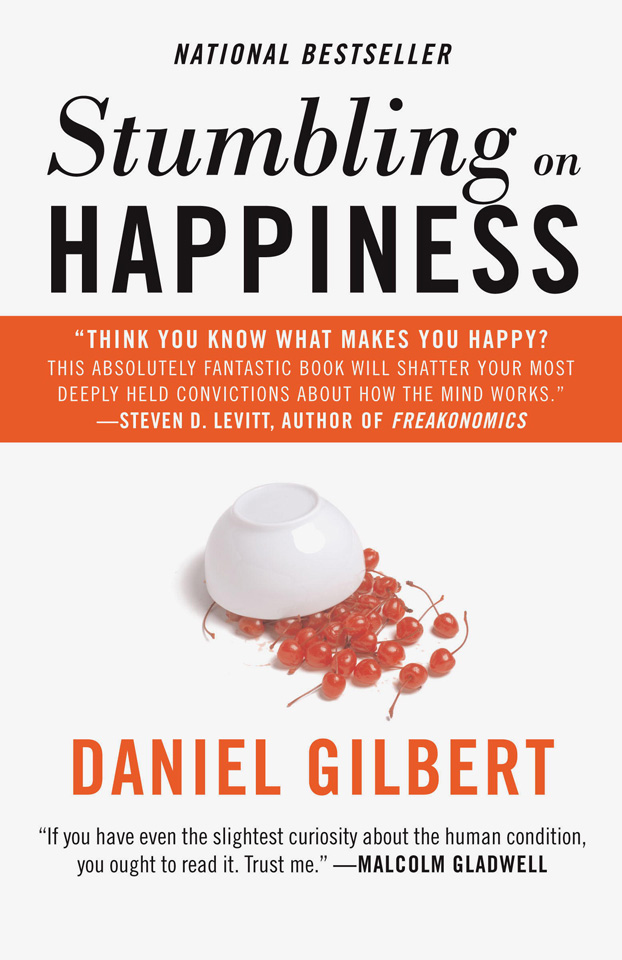 Stumbling on Happiness. Daniel Gilbert
Stumbling on Happiness. Daniel GilbertDespite the third word of the title, this is not an instruction manual that will tell you anything useful about how to be happy. Those books are located in the self-help section two aisles over, and once you’ve bought one, done everything it says to do, and found yourself miserable anyway, you can always come back here to understand why. Instead, this is a book that describes what science has to tell us about how and how well the human brain can imagine its own future, and about how and how well it can predict which of those futures it will most enjoy.
This book is about a puzzle that many thinkers have pondered over the last two millennia, and it uses their ideas (and a few of my own) to explain why we seem to know so little about the hearts and minds of the people we are about to become. The story is a bit like a river that crosses borders without benefit of passport because no single science has ever produced a compelling solution to the puzzle. Weaving together facts and theories from psychology, cognitive neuroscience, philosophy, and behavioral economics, this book allows an account to emerge that I personally find convincing but whose merits you will have to judge for yourself.